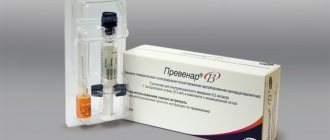What to do if your child farts often?
Elimination of flatulence in an infant depends on its cause. For short-term flatulence, especially in a small child, one-time or repeated insertion of a rectal tube helps.
With the help of a rectal tube, gases are released more easily from the intestinal tract and the child's abdominal pain is relieved. Sometimes babies with flatulence can benefit from tea containing substances that support the release of gas, or medications that relieve the child from symptoms of bloating. If your newborn farts frequently, you can apply warm compresses to his tummy or give him a light massage.
Measures to combat gas
We have already looked at some ways to solve the problem when a newborn farts often. Let's now summarize what can be done with a child crying due to flatulence:
- Let your baby drink plenty of fluids. Dill water, Plantex, raisin water, and chamomile tea help.
- For colic or pain, massage the tummy clockwise and apply a warm diaper to the stomach.
- Gymnastics is also effective. Its essence: the baby is placed on his back, and the legs are brought to the tummy, held for a few seconds, then lowered. The exercise is repeated 5-7 times. However, movements should not cause pain to the child!
- Watch your diet, and also properly introduce complementary foods to your baby.
So, if an infant farts, as it seems to you, constantly, but at the same time he is completely calm, does not writhe in pain and does not cry, nothing terrible is happening. This fact only means that the digestive system works for the benefit of the body. So let him fart to his health.
Reasons for Frequent Farting
Excessive gas and farting is a short-term or long-term problem. The causes of bloating are different, most often it is caused by swallowing air or poor nutrition. Newborns most often suffer from bloating, regardless of the method of feeding - breast or artificial. Sometimes the cause may be an infection caused by a virus or bacteria (with a bacterial disease, the gases may smell unpleasant), which is accompanied by an elevated temperature.
Intestinal colic
The first cause of colic is swallowing large amounts of air along with food. A common problem is bottles for artificial feeding, which, if held at the wrong angle, encourage air to be swallowed along with the milk during feeding. Colic is expressed by increased gas formation, pain, anxiety, refusal to eat, severe belching, and vomiting. With colic, a baby farts and cries frequently, and the stomach may become hard.
Another common cause of colic in babies is poor nutritional tolerance caused by the mother eating inappropriate foods.
In the context of infant colic, an allergy to cow's milk protein (lactose intolerance) is taken into account, which is manifested by changes in stool (stool mixed with blood), a strong smell of stool (gases can also stink). In both cases, you should consult your doctor.
Flatulence
Longer-lasting bloating, belching, and repeated loose stools are symptoms of flatulence caused by malabsorption syndrome. Malabsorption is poor absorption of individual food components from the digestive tract into the body.
One of the diseases that causes malabsorption syndrome in infants is cow's milk intolerance.
If a woman breastfeeds little or there is no breast milk at all, cow's milk is used as an alternative to lactation. All baby food is based on it. The protein in cow's milk is different from the protein in human milk, and the child's body may react negatively to it. Low tolerance leads to flatulence, vomiting, diarrhea or constipation.
Another cause of flatulence may be malabsorption syndrome caused by poor digestion of lactose.
Lactose is milk sugar that breaks down enzymes in the intestinal mucosa into 2 simple sugars. Following an intestinal infection or congenital disorder, there may be a short-term or permanent absence of the enzyme lactase (which breaks down lactose). One of the symptoms of lactase enzyme deficiency is recurrent bloating after drinking milk or dairy products. When a baby wants to fart, he starts crying because it hurts. Both gas and stool are characterized by a strong odor.
Attention! If the baby is not breastfed, it is recommended to switch to special baby milk. Your pediatrician or pharmacist will recommend it.
How to help a baby if he is tormented by gases?
The use of medications is an extreme step, and the doctor will prescribe them only if conservative methods do not help reduce gas formation in an infant. As a rule, massage, gymnastics and proper nutrition eliminate flatulence.
- An infusion of fennel and dill seeds stimulates peristalsis and the production of enzymes and relieves spasms. If the baby does not like to drink on his own, this mild natural medicine can be taken by the mother, and its properties will be transferred to the baby along with the milk;
- Massaging the tummy also improves peristalsis. You can, by gently pressing, move your fingers clockwise around the navel, kneading the contents of the belly. It is useful to press the baby’s knees to his tummy, simultaneously or alternately, as in the “bicycle” exercise, so that gases move faster to the exit. Placing babies on their stomachs before feeding is also a good measure to stimulate the gastrointestinal tract.
- To prevent air from entering the gastric tract, it is necessary to carefully monitor how the baby eats. It should completely grip the nipple or silicone nipple of the bottle, and the position of its head during feeding should be higher than the position of its legs. After the newborn has eaten, it is necessary to keep him in an upright position so that gases can easily escape from the stomach.
- Often, when holding a baby “in a column” after feeding, not all bubbles of swallowed air come out. If the baby’s position in the crib is strictly horizontal, they will travel further along the gastrointestinal tract and turn into gases, causing pain in the baby. If the design of a newborn’s crib allows the head of the bed to be raised by 30 degrees, then the baby’s head will be higher than the legs and over time, air bubbles will escape through the mouth.
- Sugar causes fermentation processes, and if your baby prefers to eat only sweet “foremilk”, he may experience flatulence. If he abandons one breast and reaches for the other, do not give it to the newborn; he must suck the rich, healthy milk from the first. For the same reason, it is not advisable for the mother herself to get carried away with sweets if she does not want her baby to be tormented by gas.
- To alleviate the condition of a crying baby, a gas outlet tube is often used. Its tip is lubricated with cream and gently screwed into the rectum by 1-2 cm. If a child cries because for some reason he does not fart, the tube will immediately help remove gases and the baby will calm down. But this rubber product should be used with caution, since if used carelessly there is a risk of perforation of the child’s intestinal mucosa.
- A nursing mother should strictly monitor her diet. Everything she consumes through milk enters the baby's body. In order not to cause increased gas formation in children, mothers should give up cabbage, legumes and grapes.
A newborn baby cries when he farts - this worries parents, since such symptoms may be signs of dysbiosis. But you shouldn’t immediately make diagnoses, but rather understand this problem.
When should you see a doctor?
Bloating, especially recurring ones, can have many other causes. These are disorders of the digestive tract, gastrointestinal diseases. In case of repeated difficulties, it is recommended to consult a doctor.
If flatulence occurs suddenly, is associated with vomiting, abdominal pain, the baby cannot poop naturally, strains a lot, the gas is foul or the stool is smelly, you should think about a more serious cause of the disease. The presence of the disease should be taken into account if, with each release of gas, the baby begins to scream loudly or roar.
To diagnose the problem, the doctor will prescribe an appropriate medical examination.
Treatment of flatulence
Treatment of increased gas formation includes both the use of pharmacological agents and folk recipes. You can use drops for newborns.
Medicines
You can try various medications available in the market. Unless otherwise stated, the drops are intended for use in children from birth.
- SabSimplex has a pleasant taste, according to reviews, it helped some, but not others.
- BabyCalmTEXT_LINKS - diluted with water, effectiveness is similar to SabSimplex.
- Infacol is an orange flavor that occupies a higher position in the effectiveness rating.
- Lefax is a good parent rating.
- Espumisan has a good parental rating.
Probiotic drops have a good effect. They are more expensive, the effect occurs later, but they colonize the intestines with healthy bacteria:
- BioGaya;
- Nutrolin-B - from the end of the 6th month of the child’s life;
- Hilak forte is an intestinal eubiotic.
Folk remedies
You can fight flatulence using traditional methods. Try some of the following tips.
- Massage: Lubricate the chicken with baby oil and lightly massage the baby's tummy in a clockwise direction. Circular movements will help the intestines get rid of unwanted gases that cause bloating and pain.
- Warm compress: heat the diaper on a heater or iron and place it on the baby’s tummy.
- Bath: Warm water has the same soothing effects as compresses.
- Fennel Tea: A timeless natural remedy for digestive problems. Brew it for your child or, if you are breastfeeding, drink it yourself.
- Rooibos: Some mothers recommend a natural remedy for infant colic: South African rooibos tea.
Preventing flatulence
To prevent your baby's bloating from becoming a nightmare, it is wise to prevent the problem. This is better than fighting it later.
- After feeding, allow your baby to burp.
- Avoid foods that cause gas for the first 3 months after giving birth.
- If your doctor advises, eliminate milk and dairy products from your diet for a while.
- Drink fennel tea or special tea for breastfeeding women 2-3 times a week.
Difficulties with gases are unpleasant, but temporary. Flatulence and colic in children cause severe abdominal pain, but as the abdominal wall thickens, the problems recede and eventually disappear forever.
Unpleasant smell
The release of gases with an unpleasant odor is explained by the fact that the baby’s gastrointestinal tract is still in the process of formation and does not contain the bacteria necessary for the absorption of food. This is why food begins to ferment or rot – the causes of unpleasant odors. After the intestinal microflora is normalized, the unpleasant odor disappears.
Sometimes parents discover that the child himself has stopped smelling farts. But this does not mean that you can do nothing, take no measures. It is worth consulting with a specialist, he will select medications that will help alleviate the situation.
The root cause of a baby's nasty smell of gas may be the diet of a nursing mother. It’s worth reviewing it and making sure that only proper, healthy food is on the menu.
A child farts: what to do?
Although frequent gas production is normal, there are times when children need help from their parents. This is necessary when the process is accompanied by tears, loose stools, pain, etc. A nursing mother should reconsider her diet. If the baby is bottle-fed, it is advisable to change the formula. But if increased gas formation appears after changing the mixture, return to the one that was before. You can also find out what to feed your baby if there is no breast milk here.
Why do babies get gas?
The intestinal microflora of a newborn is just beginning to form, and the digestive tract itself is trying to switch from intrauterine nutrition to “human” nutrition. While the system is not stable, it often malfunctions, excessive gas is formed in children, peristalsis and stool character are disrupted. In addition, the parents themselves, unwittingly or out of ignorance, can cause excessive gas formation in the child, and then the baby often farts.
- When changing food, increased gas formation may occur in the child’s intestines. If you replace breastfeeding with artificial feeding or one type of formula with another, the baby will cry for some time, twist its legs and press them under itself, showing you that it has flatulence and a very sore tummy.
- Incorrect body position during feeding can lead to the baby swallowing air. Not finding a way out, the gases are forced to pass through the entire gastrointestinal tract and naturally come out, then the baby farts.
- The same situation occurs when a newborn does not properly latch onto the nipple or silicone nipple during artificial feeding. If the bottle with the formula is too tilted, the baby may swallow air along with the liquid.
- The milk produced in the mother's breast is not the same in composition. The “fore” milk is sweet, liquid and easy to drink, while the hind milk is fatty and flows slowly. Children are often too lazy to waste energy and suck on the most useful parts - and ask for another breast. In this case, the child does not receive enough nutrients, and the composition that he receives with foremilk provokes increased gas formation. A newborn farts a lot, but you don’t understand why the flatulence occurred.
- The diet of a nursing mother greatly affects the baby. Everything she eats is passed on to the baby through milk. If the mother dined on cabbage or legumes, it is logical that the baby farts at night and is capricious from abdominal cramps.
Intestinal colic
The cause of painful gas formation is often intestinal colic. This is also a normal phenomenon for a baby up to 3-4 months, but it causes him severe discomfort. To prevent them, use the following recommendations:
- Often a newborn baby farts in the evening. He begins to scream, grunt and moan. All this can bother a child during the daytime, but during the day he is busy learning about the world around him, so he doesn’t pay much attention to them. But in the evening, when his nervous system is exhausted, he begins to be capricious. In the evening, provide your baby with a calm home environment to prevent and also quickly cope with the “evening concert”.
- Place the baby on his tummy and play with him in this position. You can use a children's gymnastics ball for the game. Lift the baby's legs and pull them towards you, press them again to the tummy. Thanks to these simple manipulations, feces will be easier to pass and the accumulation of gases will not cause severe discomfort to the baby.
- You can use various colic remedies.
How to reduce gas formation
When the baby is just born, he still has sterile intestines. During the first couple of months, a child's intestines become populated with beneficial microorganisms, and their body begins to learn how to produce enzymes. At this period of life, the child’s intestines are not yet able to fully cope with the incoming food on their own, and this becomes the main reason for the appearance of gases. Parents can help their child during this period by following several recommendations.
Typically, a baby begins to digest milk without problems when he reaches 3 months of age.
Medicines and folk remedies
The most popular folk remedies are herbal infusions. It could be chamomile, dill, fennel, mint. Mothers claim that after consuming herbal infusions, the baby begins to feel good and is not capricious. However, Dr. Kormarovsky claims that it is not plants that have magical properties, but the ordinary water with which they are infused. It is the consumption of large amounts of fluid that helps normalize intestinal function.
Pediatricians recommend purchasing “Espumizan” and “Sab Simplex” from pharmaceutical products. The action of the drugs is aimed at destroying the bubbles in the intestines and removing them naturally. Children do not develop an addiction to the drugs; they are not absorbed into the blood, so they can be taken for a long time.
Associated symptoms
If a newborn baby does not fart, he becomes restless: he lifts his legs, groans, blushes, and cries. When palpating the abdomen, its tension is noticeable due to the accumulation of gases. The stool may be normal or absent for several days. Sometimes a skin rash appears.
The exact cause of the malaise can only be determined by a pediatrician after examining the baby and analyzing the diet of him and the mother (if breastfeeding). It does not necessarily indicate the presence of any pathology - sometimes natural factors cause difficult gas separation at this age.
Gas formation with feces
If the gastrointestinal tract is severely upset, the baby may fart with poop or water, while he strains and cries a lot, as this process is difficult for him. Parents often complain that their child farts with water even in his sleep. If the baby farts with liquid feces, then first of all it is necessary to reconsider the diet. It is also worth getting tested to rule out intestinal infections.
But many experts assure that there is nothing wrong with the release of feces along with gases. Pediatricians often explain that the child is learning to cope with his body and fart accordingly. Therefore, it is normal for a baby to fart with feces in his sleep.
A breastfed baby's stool may vary in color and consistency every day. Lumps of white, yellow color or feces with mucus are not scary. If a baby is formula-fed, undigested food debris may come out with the poop. In this case, you should pay attention to the baby’s diet and make sure that he receives enough water. If the child’s body does not have enough fluid, this can cause increased gas formation or constipation, which is quite painful for the delicate child’s body. It is important to monitor how many times a day the child poops normally (loose stools are also taken into account).
When a child farts with water in his sleep or simply poops liquidly, do not forget about normalizing the body’s functioning and replenishing the water balance. To do this, you need to give your child a little more drinking water than usual. But don't overdo it! It is worth noting that feces and water irritate children’s delicate skin every day. Therefore, with such a problem, it will require especially careful care.
Possible reasons
If an infant does not fart, the reasons may be:
- Dysbacteriosis. One of the most controversial diagnoses in medicine. It is believed that dysbiosis can occur when using poorly washed pacifiers or dirty toys. As a result, the balance between healthy and pathogenic bacteria is disrupted. A characteristic symptom is the presence of mucus in the stool. A number of experts believe that the matter is not a violation of the composition of the intestinal microflora, but its infection.
- Colic – up to 3 months. Medical opinions on this matter are also mixed. WHO states that they are caused by incompetence of the child's gastrointestinal tract and do not require drug treatment. Representatives of the organization believe that consumers are deliberately misinformed about this diagnosis in order to sell the corresponding medications.
- Lactose intolerance or other food allergies. FN will be manifested by frequent loose stools, with foam and a sour odor.
- Inappropriate formulas if the baby is bottle-fed
- Poor nutrition of the mother if the baby is breastfed. Eating heavy, fatty, canned foods for a nursing woman can lead to the development of constipation and the formation of fecal impaction.
- Irritation of the anus due to the last difficult stool or improper care. Due to discomfort in this area, the child does not try to relieve the intestines of gases, but, on the contrary, to compress the anus.
- Imperfection of the second signaling system. At an early age, the child is poorly aware of where he feels discomfort. Therefore, he can strain his stomach and push, for example, with a headache.
How to release gas in newborns?
Pediatricians do not advise interfering with the natural processes in the child’s body, however, when a child farts and cries and his condition does not improve, parents can alleviate the suffering of the little man.
It is enough to start removing gases from a newborn using natural medicines or a gas tube. Medicines: drops and teas can be bought at any pharmacy; dill water will also help with this problem.
An ordinary pipette (without a rubber tip) or an attachment from a children's enema bulb is used as a gas outlet tube. The principle of a gas outlet tube is that gases escape through this tube easier and faster than naturally.
How to release gas in newborns video:
How often can newborns pass gas?
If the child farts a lot, but is active and does not cry, there is no need to remove gases or give any medications. If an infant farts and cries for a long time, and all measures have been taken: frequent laying of the child on his stomach, gymnastics and massage did not produce results, you can use medications or a gas tube.
But do not forget that frequent farting promotes bowel movements, and with unjustified intervention, it contributes to constipation in the newborn.
A child farts and cries at 1 year of age, most often when constipation occurs or a new product is introduced into the baby’s diet. The baby’s body has already established the functioning of the digestive system, but a violation of the diet, the individual reaction of the body to a particular product causes colic, cramps in the child’s abdomen, as a result of which the baby often farts and cries.
The child screams when he farts due to discomfort or pain, which causes him constipation and intestinal colic.
If the usual methods of placing the child on his stomach, performing gymnastic exercises, and excluding new foods from the diet do not produce results, the child’s parents should consult a pediatrician for advice.
Perhaps the reason for this behavior is dysbacteriosis or the development of staphylococcus. Upon referral from the pediatrician, stool samples or a smear will be taken to determine the cause of the disease. Based on the research, the pediatrician will prescribe qualified treatment.
Many parents have to deal with a situation where a newborn farts and cries. This manifestation of childhood intestinal colic is common and causes quite severe pain to the little toddler. Unfortunately, it is almost impossible to avoid colic in newborn babies. Every child suffers from this to one degree or another. This is due to the fact that over a long period of time the baby has been in the mother’s tummy, it has become accustomed to functioning according to one method, and after birth it is immediately attacked by many real life factors. A newborn's constant desire to be held in his mother's arms in the usual embrace alternates with incomprehensible pain in the tummy. This is where the constant crying and whims come from.
It takes a baby several months for its digestive system to begin to cope with the load. And all this time the baby’s gastrointestinal tract is growing up, parents will have to gain strength and wait. Only your patience, love and care will help the baby during this difficult period. Be calm about periodic colic, gasping and changes in your baby's stool.
The most important thing in this situation is not to panic, because colic is a very common phenomenon in infants. And from panic and constant anxiety, a nursing mother may lose milk. The transition from breastfeeding to artificial feeding will cause an even greater attack of colic in the baby!
Let's calmly understand all the intricacies of this matter, find out the causes of its occurrence, methods of control and prevention.
What to do?
If a month-old baby does not fart, and the problem recurs regularly, you should inform your local pediatrician about it. If there are no signs of pathology, a warm compress and a light massage of the abdomen - in a circular motion clockwise - helps. Special gymnastics is useful: bend the baby’s legs at the knees, pressing them to the stomach, then straighten them. In total, you need to do half 20-30 repetitions at a time.
Some mothers cope with the problem with the help of a sling: the baby warms up from the mother's warmth and feels a slight vibration. This helps him get rid of accumulated gases. Bathing in warm water works in a similar way.
If the cause of the problem is irritation of the anus, you need to lubricate it with baby cream. Every time the baby starts to push, it is necessary to put him to the chest. At this point, the anus will relax and gases will come out.
Your pediatrician may recommend using a gas tube. As a rule, it is used temporarily until bowel function returns to normal. You can purchase such a tube at a pharmacy or make it yourself by cutting off the top part of a children's enema tube. It should be injected shallowly, strictly following the instructions.
To normalize digestion, the pediatrician can prescribe antifoam medications - Sab Simplex, Espumisan and other simethicone-based drugs. They destroy gas bubbles in the intestines and remove them naturally.
Additionally, plant-based carminatives are recommended - Babotic, Babycalm. They facilitate gas separation and have a mild analgesic effect.
Traditional medicine recommends using dill water or fennel tea to solve this problem. They can be combined with traditional therapy, but after discussion with the pediatrician.
Farts but doesn't poop
This situation often happens with constipation: the baby strains a lot, turns red, his entire condition shows that he is in pain, but his tummy is tense and he can’t go to the toilet. If the newborn farts a lot, it means that there is an excessive accumulation of gases in the intestines that need to be helped to come out. This often happens when switching to artificial nutrition.
The problem can be corrected with the help of Lactulose preparations, which have a mild laxative effect (and it is also safe for babies), as well as the use of. In addition, pharmaceutical teas with fennel are used. At the same time, together with the pediatrician, the question of whether correction of the baby’s nutrition and selection of a new formula is needed.
View full version: Child 1 year 3 months, releases gases with pain and screaming
Good afternoon Child, girl 1 year 3 months. Now weight is 10 kg, height is 75. The girl is sociable, development according to her age, plays in the sandbox with all the children herself. Mom height 160 weight 53, Popa 173 weight 65. Mom from 1 year old cannot stand milk at all, even the smell.
Since birth, I have been tormented by pain in the abdomen (even better to say in the intestines, farts with screaming, crying and other hysterics). From 1 month, on the advice of a doctor, artificial feeding. After any mixture, the situation remains the same, screams day and night, frequent stools up to 8 times a day, always green, always of different consistency, often mixed with lumps and purees and mucus and fat. Nobody talks about lactose deficiency, the doctor’s diagnosis is colic, be patient. They did an ultrasound several times, everything is fine, except for one thing, there is a lot of gas in the stomach and intestines, although no one notices them when palpating, the stomach is soft. At 6 months the situation is unchanged. The doctor sent me to take a blood test. And away we go. They sent me to an infectious disease specialist, who treated dysbacteriosis for up to 8 months; all the treatment did not reduce the pain when passing gas. In the tests everything is always different, then 100% Klibsiella, then Proteus, then Staphylococcus, etc. at 9 months. the submandibular lymph node became inflamed and enlarged, they called a doctor, told him to take an antibiotic and that’s it, the temperature did not subside for 3 days - 40, we went to the infectious disease unit, injected antibiotics for 7 days and again treated dysbacteriosis with intestifag at the same time, the child refused any milk for the whole week, he even vomited from milk . After 7 days there was no point, they sent me to the regional hospital, they diagnosed lymphadenitis - they performed an operation and discharged me in two days. No one understood what caused the lymphadenitis; the child did not catch a cold. The infectious disease specialist said because of Klebsiella. From 10 to 12 months. the child does not gain weight and does not grow, the loss is even 400 grams. Wereli 9800 and became 9400. Now she weighs 10 kg at 3 years old. at 12 months The child had diarrhea once, the infectious disease specialist says to drink a lactose-free formula. On the very first day, the child slept almost all night, didn’t even fart, but in the morning the gases woke her up anyway. But there were no more hysterics. Next, the infectious disease specialist makes a diagnosis of healthy and a diagnosis of lactational insufficiency. The pediatrician refers me to a gastroenterologist. We tested again for dysbacteriosis (for some reason). Proteus vulgaris and fungi of the genus Candida were detected, everything was almost within the normal range. The child begins to experience painful gases again, or rather they did not end, they simply decreased several times after switching to a lactose-free formula and stools became not frequent, but 1 or 2 times a day and without greens and almost without mucus. The allergist said that it is unlikely that this is an allergy to cow’s milk and only FN. The child had no external signs of allergies, his skin was always clean and without itching. Only when he poops, if you don’t notice right away, then after half an hour it’s like there’s a burn on his butt and pussy, everything is red and the child is screaming, everything is burning for him. Now the situation is like this: During the day, when he runs around without crying, he releases gases somehow. When she sleeps, whether during the day or at night, she wakes up 2-3 hours after eating, begins to cry loudly, scream, tears flow in hail, her eyes are open, her stomach contracts, screams until she farts, then gases come out, she immediately calms down and sleeps on. This can happen several times a night. At night, without waking up, he may struggle several times. I kept a food diary, but I can’t find a connection with food, I can feed the same thing and the situation can always be different. It’s as if there is some kind of pinching in her intestines; gas and feces cannot pass through some part. I’m talking about feces because when she poops, her feces are often mixed with small lumps and mush, i.e. part such part another, i.e. as if part of some kind of feces was stale. At the moment, the fontanel is not yet overgrown, about 1 by 1.5 cm. And it has been in this condition for a long time, they prescribed Calcohel 1.2 tablets once a day. The child’s appetite is poor and has been for a long time; he simply may not eat at all, although he can drink as much formula as he wants. For example: I got up for breakfast at 7:30, at 9 am I sit down at the table, he turns away, then he somehow eats 6-7 teaspoons of porridge (any kind) and that’s it, then maybe a jar of fruit puree or cottage cheese. We walk from 10 to 12:30, at 13:00 he doesn’t want to have lunch, he really wants to sleep, he has to make a mixture - he drinks everything while sleeping. He wakes up from 14:30 to 15:00, plays, at 16:00 he doesn’t want to eat, at 17, 18, he can eat something light (fruit or mixture), he doesn’t eat normal food and doesn’t want to, we walk until 20 :00, we come again, 5 spoons and that’s it. She is satisfied with a very small quantity and never refuses to eat the mixture only. Scatology is normal, blood is normal, no ICP, gaster refuted the analysis for worms and said that they are checked in the analysis for scatology. The gastroeterologist says we need to go to the hospital for an examination, but we don’t have such a good hospital in our city, we are from Vladimir, he says either to Moscow or to the lower Institute of Nutrition. We are ready to lie down for a fee if you see a pathology here? advise which one and where? I'm better for Moscow. Main complaints: 1.Release of gases with tears and pain, screams. 2. Poor appetite (although for me this is not yet the main complaint and the reason for contacting you)
Comments
Deliver the milk to the sowing tank.
I had this for 5 days in a row, I started eating something that strengthens me (black tea especially) and it helped. I smeared my butt with bepanthen.
This happens to us periodically. I wash it without soap, apply bepanthen, then powder, try to drink more and it goes away within a day.
— @alinapoglod, what kind of powder do you use?
— @opossum, maybe it’s because of the milk? Doesn't fit?
Kapitoshka with chamomile, the best one in the pharmacy, and it suited us. I also sprinkle Baneocin sometimes, this powder kills germs, it’s also a good thing










